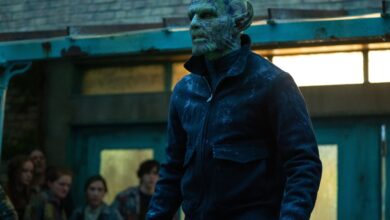Monsters: The Lyle and Erik Menendez Story Review: One Step Away from the Monster’s Mind
Cast: Nicholas Alexander Chavez, Cooper Koch, Cooper Koch, Javier Bardem, Nathan Lane
Created By: Ryan Murphy
Streaming Platform: Netflix
Filmyhype.com Ratings: 4/5 (four stars)
A new true crime series has arrived on Netflix that is literally unmissable. It is called Monsters: The Lyle and Erik Menendez Story. It is the second chapter of the anthology saga by Ryan Murphy and Ian Brennan dedicated to serial killers and started in 2022 with the series Dahmer. Two years after the serial phenomenon that shocked and fascinated the entire world, a new story dedicated to two of the worst killers in American history arrives on Netflix ready to create the same noise, to provoke, to push for a deep debate and, certainly, to glue everyone to the screen. After the incredible success of Monster: The Jeffrey Dahmer Story, Ryan Murphy returns to Netflix with the second chapter of his saga dedicated to the “Monsters” of American crime. Those who expected the “usual” American serial killer might be disappointed: at the center of Monsters is a couple of rich kids, who killed their parents in the late 80s. Why is this dissonant choice with what was done previously? Because the terrible crime of the Menendez brothers – like those of Dahmer – has marked the American crime news and has had a huge impact on popular culture, it has been at the center of a huge media storm and for this reason allows Murphy to do what he prefers, that is, talk about a sick society and its consequences on the psycho-emotional formation of those who are part of it.
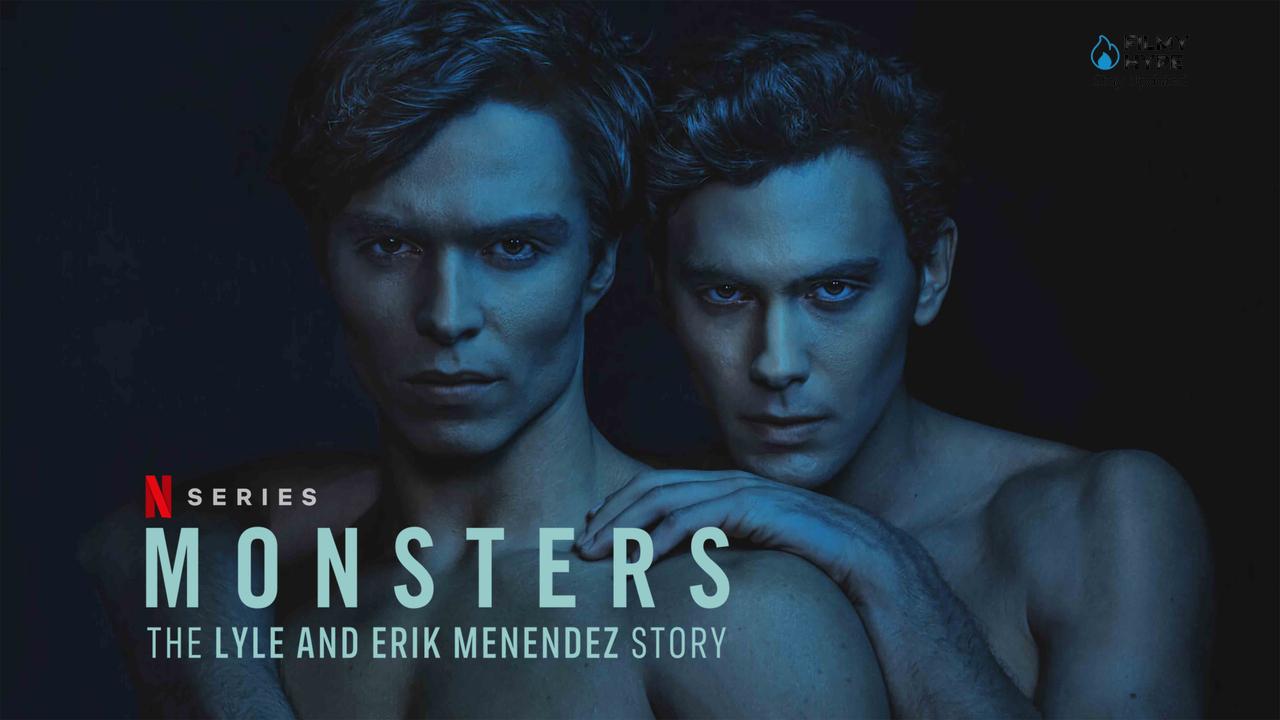
While we’ll have to wait until the third season to find another serial killer, which will focus on none other than Ed Gein (the one who inspired the killers in Psycho, The Texas Chainsaw Massacre, and The Silence of the Lambs), this second batch of episodes takes a different but coherent direction, dragging the viewer into the story of two of the most famous killers of all time (at least across the ocean). But who were the Menendez brothers? Sons of a rich producer (first music then film) Eric and Lyle went down in history for having massacred their father Josè and mother Kitty, with rifle shots, in their luxurious villa in Beverly Hills. The murder was initially attributed to the mafia (the method of execution could vaguely recall that of organized crime), but soon all suspicions fell on the young Menendez, who in the meantime had given themselves over to the good life (even more beautiful than the one they already led) with the money of their deceased parents.
The series chooses to tell the facts in the most complete way possible, between temporal interlocking and different perspectives, it moves from before the facts by telling the family’s past up to everything that happens after, dedicating a lot of space to the trial. A choice consistent with what Murphy has already done in many of his works dedicated to the criminal world, but which in this case does not work at its best. The series, divided into nine episodes, at a certain point loses pace, becomes repetitive, and spins on itself, distancing the viewer from an emotional point of view. If the first five episodes are truly excellent, the second part of the series loses the energy of the initial one, ending up ruining the viewing experience. In the effort to represent as many points of view as possible, to give multiple versions of the story and thus capture the viewer in a narrative that wants to point the finger at society as a whole (as is typical of Murphy), Monsters, the story of Lyle and Erik Menendez is, unfortunately, more chaotic than engaging. Too bad, because the performances of all (and it’s not often we get to say this) the protagonists are absolutely amazing.
Monsters: The Lyle and Erik Menendez Story Review: The Story Plot
On the evening of August 20, 1989, José (Bardem) and Kitty (Sevigny) Menendez were sitting on the couch of their luxurious villa in Beverly Hills, testimony to a successful life and home to a perfect family. The evening is one of those serene and breezy ones and the two enjoy a bit of comfort after a stressful day. One of many for a Hispanic who began his climb to the American Dream as an underdog and is now about to enter politics and for a future first lady who has accompanied her man since the first look of love they exchanged in their youth. The fruit of the feeling that unites them is their beautiful, elegant, sporty, and brilliant two sons, Lyle (Chavez) and Erik (Koch), the same ones who that evening of August 20 entered the luxurious villa in Beverly Hills armed with rifles and killed them while they were sitting on the couch. You will understand that obviously something does not add up in the description just given of the Menendez family, otherwise the two boys would be crazy, unbalanced, and violent (and maybe they are) without any kind of motive. A bit like the description that jumps out at the first version that reached the police when they listen to the tapes of the psychotherapist of the two brothers, containing the confession of the brutal crime.
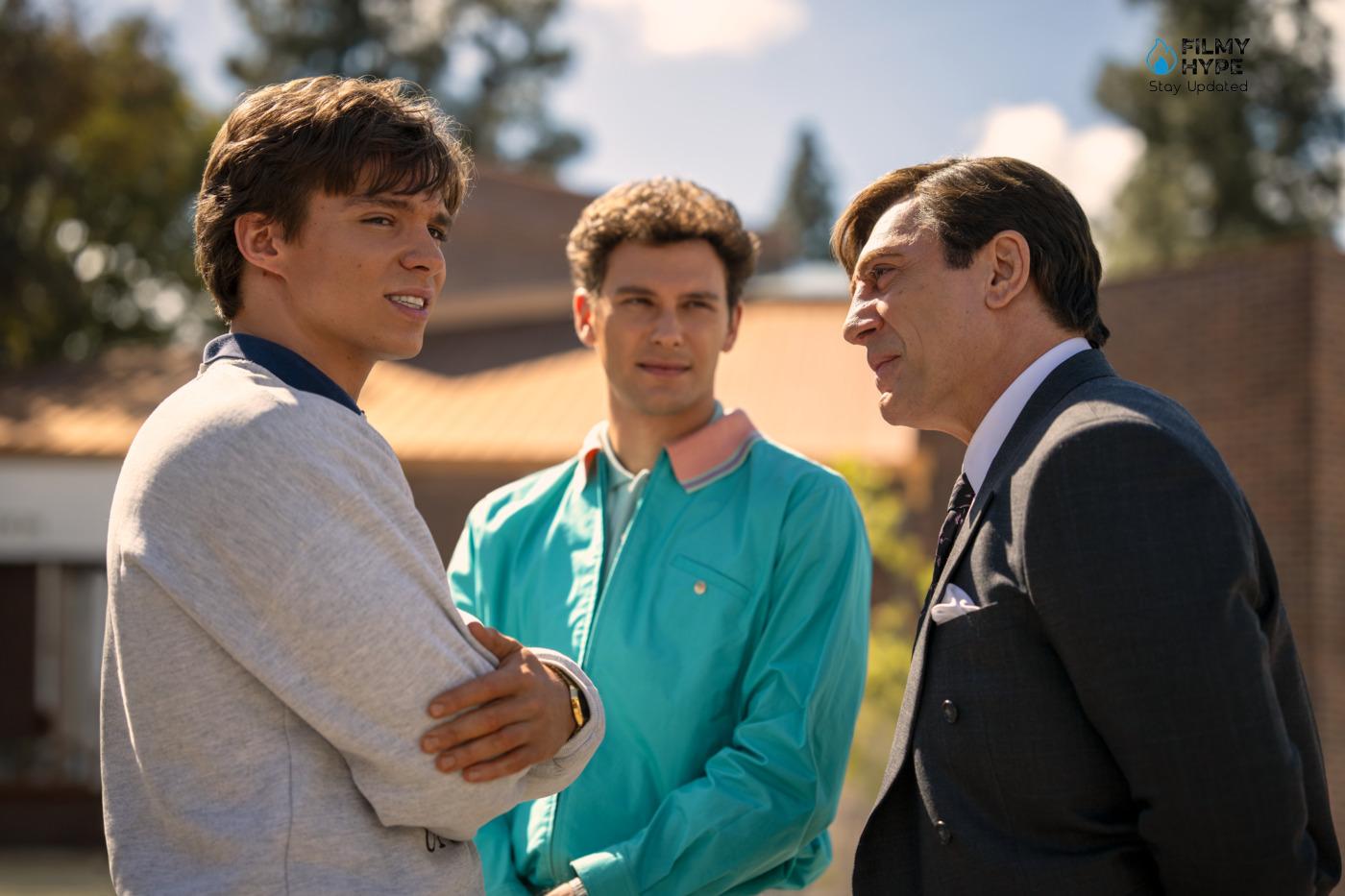
Case closed, but instead, it is not. The arrest is only the opening of the canonical Pandora’s box on the reality of a family that all of America will discuss, divide, and measure itself against. José was an abusive father and his wife Kitty was reduced to a human wreck full of frustration and hatred towards her two children, to the point that his threat to kill them was taken so much into consideration that the children screamed out loud that their extreme gesture was only an act of self-defense: hitting before being hit. Here is the explanation! The monsters are not them, but their parents. And what if it wasn’t even like that? Maybe we need to go even further back, maybe there is something else instead. Maybe what we think we can label and keep at a distance from ourselves actually concerns us, even such a brutal and unacceptable story.
The starting point of this story is obviously the death of Josè (Javier Bardem) and Kitty Menendez (Chloë Sevigny), the first episode which starts a few days after the murder is functional to outline the personality of their children, who we soon discover are their murderers. One is cold, calculating, and prone to outbursts of anger, Lyle (Nicholas Chavez), and the other is more sensitive and prey to his emotions Erik (Cooper Koch). Why did they kill their parents? In the episodes that follow, hypotheses and versions follow one another: the need to free themselves from paternal control, a mother who seems unable to stand them anymore, and continuous verbal violence from Josè and Kitty that seems to have brought them to the point of no return. Then there is greed, the fact that their parents had most likely excluded them from the will, and the need for the two offspring to maintain the lifestyle they were used to. Digging deeper, however, reveals the darker sides of life at the Menendez home: the continuous sexual abuse inflicted by their father on both brothers and the constant fear of being killed by those who brought them into the world would be the motivation that pushed them to the extreme gesture. Or at least, this is what the two tell their lawyer, the resolute Leslie Abramson (Ari Graynor), and which will become the official version supported by the defense. But is it really like this? Or are the Menendezes just manipulative liars?
Monsters: The Lyle and Erik Menendez Story Review and Analysis
“Who are the real monsters?” This is the question posed by Monsters: The Lyle and Erik Menendez Story, which boasts surprising direction, a perfect cast, and a writing that is nothing short of wonderful. Each episode is a small film that leads the audience to a continuous examination of conscience while allowing, at the same time, to enjoy a story so well constructed that it becomes a real addiction, however strong, disturbing, and emotionally trying it is. But the skill of Ryan Murphy and Ian Brennan is undeniable in building portraits of serial killers that can remain in the history of the small screen and this series, after Dahmer, is yet another proof. And adding to this winning mix the talent of the two main actors, Cooper Koch and Nicholas Alexander Chavez, who have done an exceptional job in playing the roles of two murderers of their parents, the series becomes a little gem.
Monsters: The Lyle and Erik Menendez Story is a small masterpiece, it is a series that offers exceptional episodes such as the fifth, entitled “The Hurt Man” where we witness a heartbreaking monologue lasting an entire hour by Erik Menendez who recalls the sexual abuse suffered by his father where the direction is so impressive and communicative that it overwhelms the viewer and touches his soul. We expected a lot from this series, considering the beauty of Dahmer that, even today, we consider one of the most beautiful series ever on Netflix and the expectations with its sequel have not been disappointed. The story of Lyle and Erik Menendez is the new diamond tip of Netflix and Ryan Murphy who confirms himself as one of the best screenwriters/directors in the contemporary serial world. Let yourself be overwhelmed by this macabre and intense true crime story that, just like its sister series two years ago, hit us right in the heart as every good TV series should do.
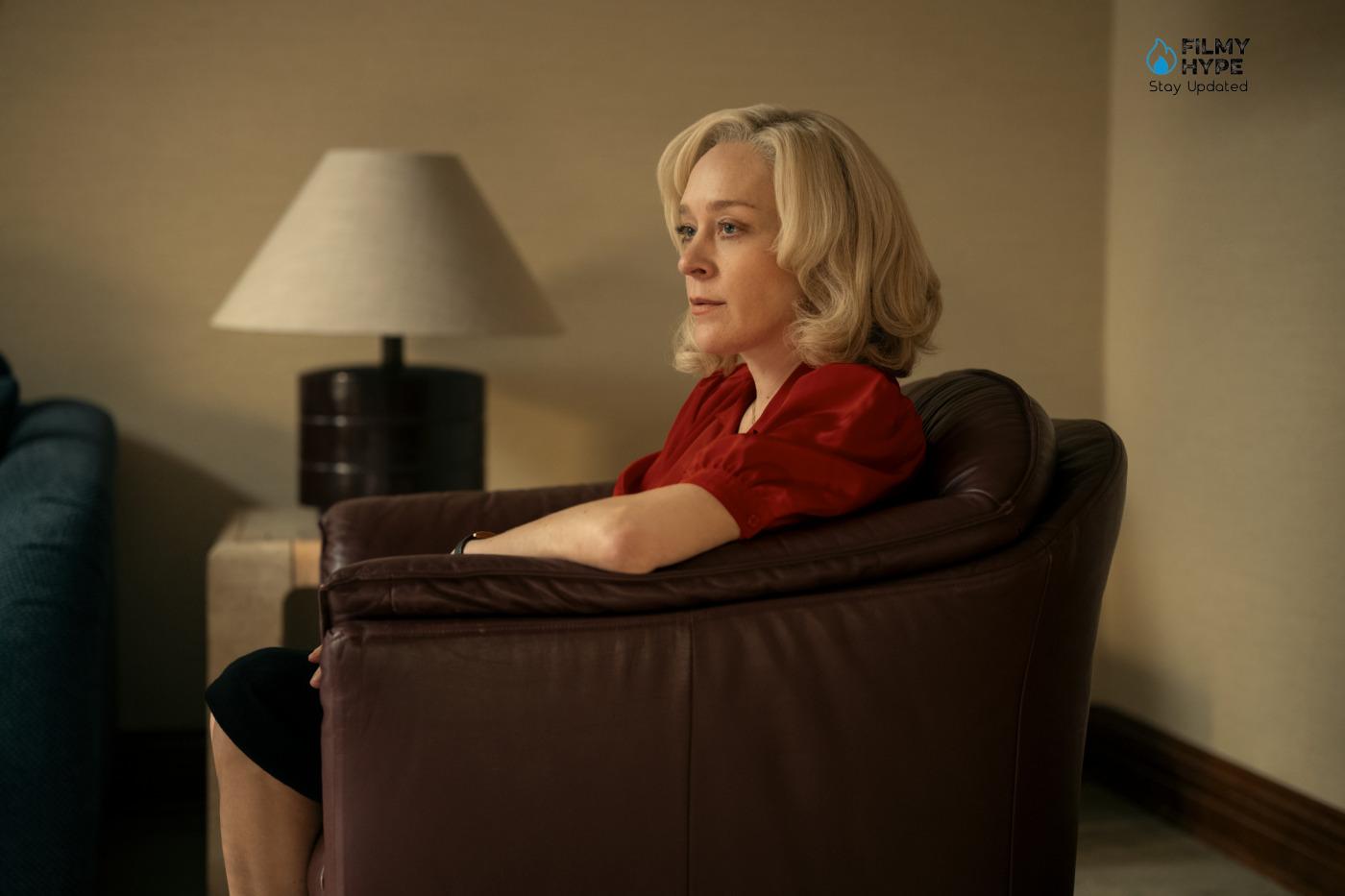
The series does not deliberately take a position but rather enjoys playing with the viewer’s perceptions, leading him to continually change his mind throughout the episodes. Are Erik and Lyle two remorseless sociopaths or the result of terrible abuse suffered for years? One thing does not exclude the other and the viewer continually wonders what the reality is between the different situations presented, between the different perspectives that continue to take the helm and “tell their stories”. This interlocking structure works perfectly until the fifth episode, which is truly a splendid example of serial narration, in which direction, script, and performances are capable of elevating the story to the best. Erik’s long confession, as he talks to Leslie about the abuse he suffered, is realized in a sequence with a fixed camera on the boy, initially framed from the waist up then increasingly closer, until arriving at a close-up. Cooper Koch’s interpretation is truly textbook and strikes the viewer’s heart.
It is from the excellent fifth episode that things begin to falter: the series continues to overturn and “re-baste” the story, purposely confusing the viewer. However, everything ends up being repetitive and redundant, some of the paths taken by the narrative (in particular the storyline of Dominick Dunne, played by veteran Nathan Lane) seem useless and excessive. The entire final part of the series is particularly anticlimactic and has nothing of the strength and fascination of the first 5 episodes. Was there a need, we asked ourselves, for the long digression on OJ Simpson and his case? More than a necessary piece of the plot, it seemed to us simply the result of Murphy’s desire to quote himself. The performances of the cast remain really excellent, and as we said initially, they are all, without exception, extremely convincing. Nicholas Chavez and Cooper Koch give you the shivers when they switch from one side to the other, that of selfish executioners and that of victims forced to extreme gestures by years of abuse.
Javier Bardem in the role of the abusive father is terrifying, a storyteller, and at the same time cruel and violent, Chloë Sevigny is instead cold and detached, everything we would never believe a mother could be. But are their characters really like this or is it just the narration of the two murderous sons that represents them in such a cruel light? We will never really know, but here and there sides of them emerge, phrases, and gestures that make us doubt, that lead us to ask ourselves, for the umpteenth time, where the truth really lies. The great work done by the cast is however a bit “ruined” by a script that progressively loses focus, which as we have repeatedly told you ends up spinning on itself and becoming rather boring. The message that the author wants to convey is clear, but it loses incisiveness and power the more the series goes on. Monsters is a condemnation of a society that gives free rein to abuse and in which this is passed from parents to children, from generation to generation (it is no coincidence that both Josè and Kitty come from violent family environments), but also to the spectacularizing of pain, which is swallowed up by the media and transformed into a source of entertainment for an increasingly curious and “hungry” audience.
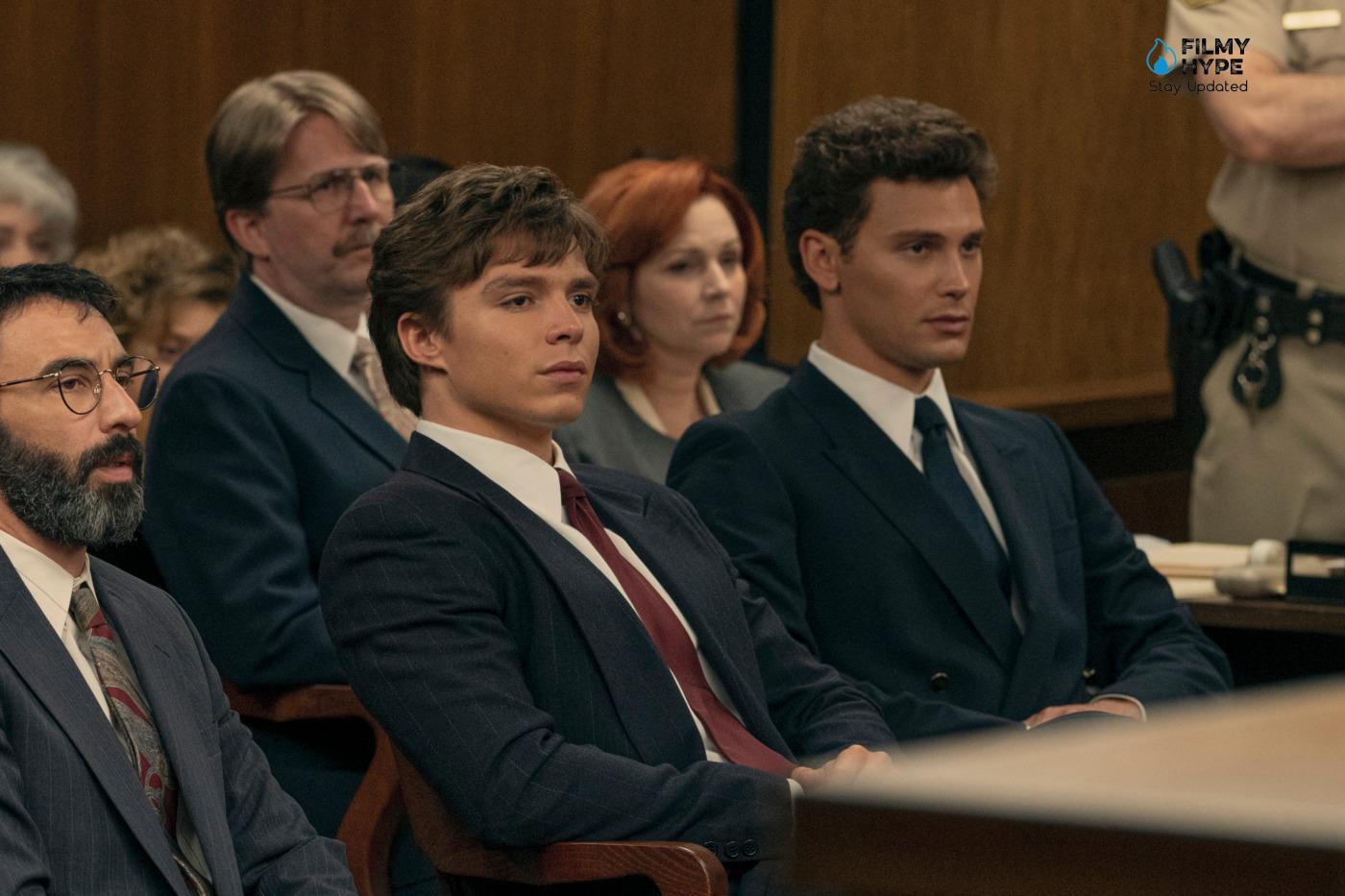
The emptiness of those Eighties, the rampant capitalism, the selfishness, and careerism, shine through perfectly, placing the series in a completely different context than Dahmer: it is the death of the American dream that is told in Monsters, which stages a reality in which dreams sprout but then shatter. Josè Menendez is the perfect example of the American Dream that comes true but ends up creating real monsters: whether they are him and his wife or their two children, it doesn’t matter. They are all four products of a sick society (and here we clearly return to Dahmer, and the corrupt world that allowed him to perpetrate his crimes) that created and “nourished” them. Throughout Murphy-Brennan’s filmography, there is an unmistakable trace, albeit one that has evolved. An inevitable comparison is within the true crime sphere, which began with a few seasons of American Horror Story and continued with the Netflix miniseries Dahmer and The Watcher.
If the latter takes on a much more fictionalized and less biopic character, the series on the infamous Milwaukee monster is to be considered the first part of a larger project on American monsters, which finds in Monsters: The Lyle and Erik Menendez Story a second phase that is as similar as it is different. Ryan Murphy and Ian Brennan’s audience comes from an experiment like Dahmer, in which the controversial focus on the psychology of the serial killer – not free from harsh criticism on the spectacularization of pain by the relatives of the victims – meant that Jeffrey was the core and the very engine of the story. The almost perpetual yellow filter, like that of his glasses, affirmed a subjective and univocal point of view, as if the viewer followed the story solely and perpetually through his eyes and, therefore, his singular perceptions of reality.

In Monsters: The Lyle and Erik Menendez Story, on the other hand, the events are the fulcrum, around which the characters move without actually taking control, which Jeffrey Dahmer’s character had from the first scenes. The point of view is that of an external observer who certainly gets involved in the facts but does not enter into them completely, avoiding the thorny fascination of the previous project. Dealing with extremely delicate themes such as abuse and often being set in interrogation rooms and a courtroom, Monsters is a story made of long and harrowing monologues, laborious dialogues capable of penetrating the mind of the viewer and moving, even at the cost of hurting. For obvious reasons, therefore, the show doesn’t tell that reigned in Dahmer is often abandoned; however, in other cases, the writing sometimes becomes didactic, preceding images that show what is being told by one or more characters – cases in which the show don’t tell would have been ideal.
Visually, in addition to the costumes and the sets, the filters used become functional to the temporal placement, giving the idea of analogical shots. However, there are no particularly symbolic uses of light or photography, except for some intentionally blurred memories of Lyle and Erik (among the few shown and not just told). The soundtrack follows the timeline from time to time, but the songs chosen are deliberately placed in an antithetical way to the events being narrated, playing on the disturbing contrast between energetic – even danceable – motifs and violent or dramatic moments such as the murder of José and Kitty or their stay in prison. Although brief, the parenthesis on the character of José Menendez is interesting, an emblem of the human being who becomes the bearer of generational error, who does because he suffers, who is born from a “monster”, transforms and becomes its father. Compared to what is returned of Lyle and Erik, one scene in particular sees Javier Bardem give the viewer one of the most touching, painful, and disturbing performances of recent times.
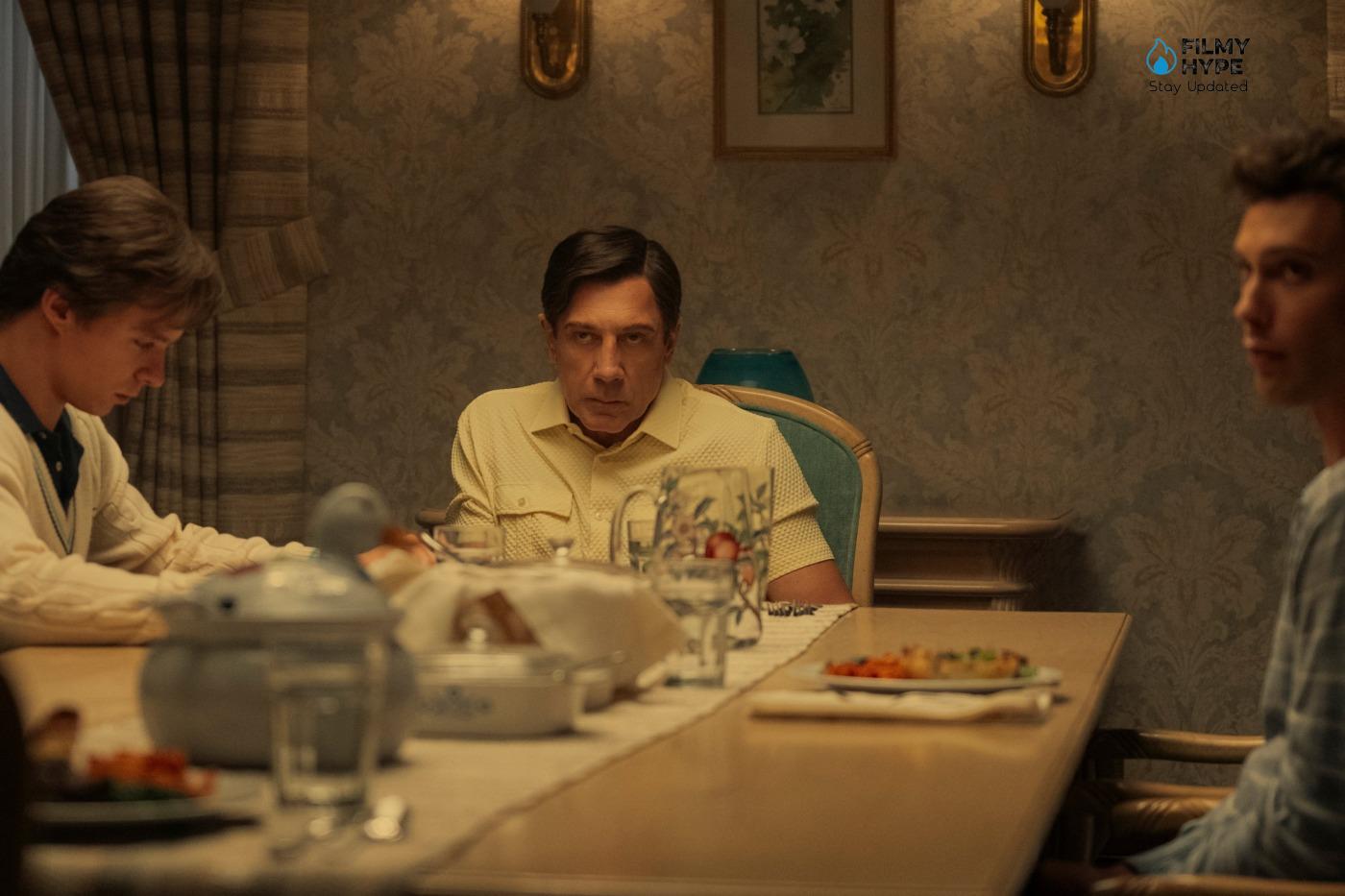
Special mention for Ari Graynor in the role of Leslie Abramson, a character who carries on her shoulders not only the weight of being a female lawyer in the 80s and 90s but also that of having to defend a murderer, challenging the jury and public opinion to question the very concept of good and evil. If you are a fan of true crime and legal dramas, Monsters: The Lyle and Erik Menendez Story is a good combination. It offers an interesting narrative in which there is a lot of internal coherence with reality, thus reaching the viewer as a reliable reconstruction of the facts by Ryan Murphy and Ian Brennan and assembled in their own way, but without ever taking that extra step that allows you to enter the mind of the monster, remaining to watch from the outside, behind a glass. The choice to remain in a comfort zone and therefore, even with personal writing, to limit oneself to telling the facts puts a big gap between this series and the previous project, for better or for worse.
Monsters: The Lyle and Erik Menendez Story Review: The Last Words
Monsters: The Lyle and Erik Menendez Story is a good mix between legal drama and true crime series, which, compared to the controversial Dahmer, remains in a comfort zone, just a step away from entering the mind of the monster, telling the facts with a writing that screams “Murphy-Brennan”, but without a visceral psychological investigation that, probably, would have been perceived as risky. The second season of Monster, the anthology series created by Ryan Murphy and Ian Brennan, confirms everything good done in its highly acclaimed first part and raises the bar even higher. Monsters: The Lyle and Erik Menendez Story reflects on the potential of the crime genre, mixing linguistic registers and, relying on extraordinary interpretations, plays on the overlapping of different points of view creating a macro language with which to talk about the narration itself of this type of story, the archetype of deformations of society, reflecting on what attracts the viewer and on how their very essence escapes even those who are part of it. Essence is never the search for truth, because truth does not exist.






